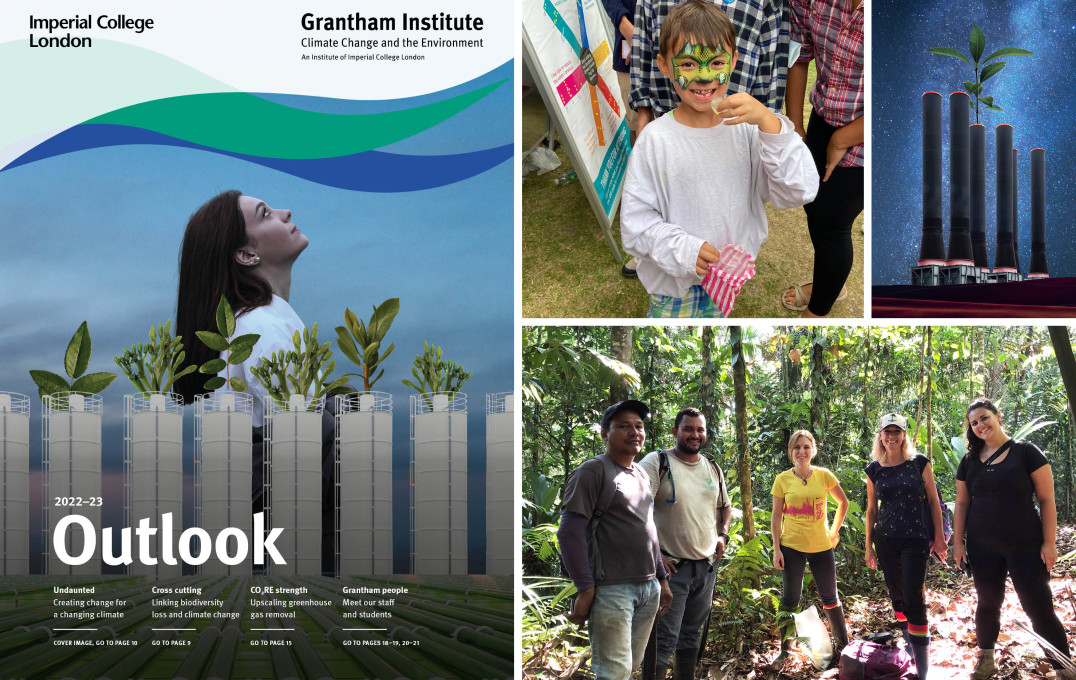Ones to watch: the next steps in Imperial’s work on climate and the environment
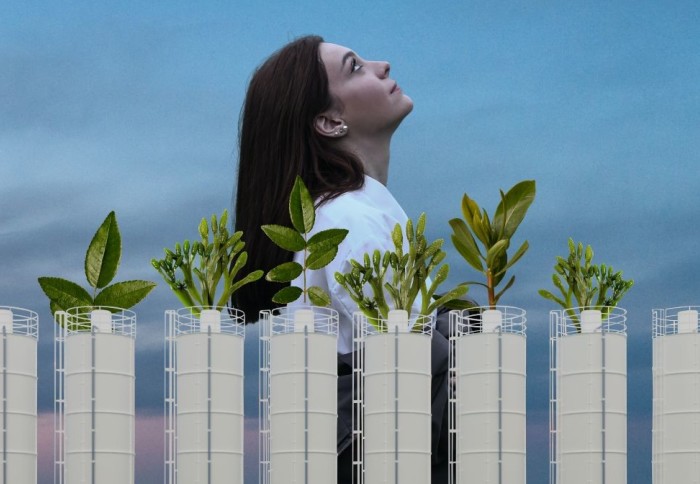
Grantham Institute’s annual magazine, Outlook, showcases how Imperial College London is tackling the challenges of climate and environmental change.
The latest edition, which is now available to read online and to download as a PDF, takes you from the forests of Costa Rica, to the Great Exhibition Road Festival in South Kensington, through the College’s multi-disciplinary research, innovation, public engagement and education.
“Imperial has taken major leaps forward in identifying and supporting bold solutions for the climate and environmental crises, and capitalising delivering them from our unique position in London,” explains Professor Ralf Toumi, Co-Director of the Grantham Institute, which is Imperial's hub for climate and environment work.
“Over the last year, the Grantham Institute has welcomed a new Director of Innovation, Alyssa Gilbert, who is driving forwards our innovation activities at Undaunted. We are also delighted to welcome the Institute’s first Director of Training, Anne Houston, who is expanding our offering of training programmes for future climate leaders.”
“In addition, in the pages of this magazine, you can read about the successes of Imperial’s cross-cutting researchers who are advancing the knowledge needed to address the impacts of climate change, restore biological diversity and protect human rights and basic needs. The publication isn’t long enough to list all their achievements, so we encourage you to sign up to our newsletter for more news, events and updates.”
Between the covers
For a taster of what’s inside, here are just a few examples of how Imperial's staff, students and entrepreneurs are looking to the future and rising to the challenges of climate change.
- As part of her PhD, Science and Solutions for a Changing Planet (SSCP) DTP postgraduate researcher Anna Gee (pictured below) is working with international charity Plant-for-the-Planet to help regrow forests on degraded agricultural land on the Yucatán peninsula in Mexico. Her research aims to untangle what leads to tree diversity in tropical dry forests. In areas that have been impacted by human activity, regenerating or planted forests may lack the features of more intact forests that naturally promote tree diversity. Anna hopes to use the results of her work to inform best practice for promoting resilience and longevity in forest restoration.
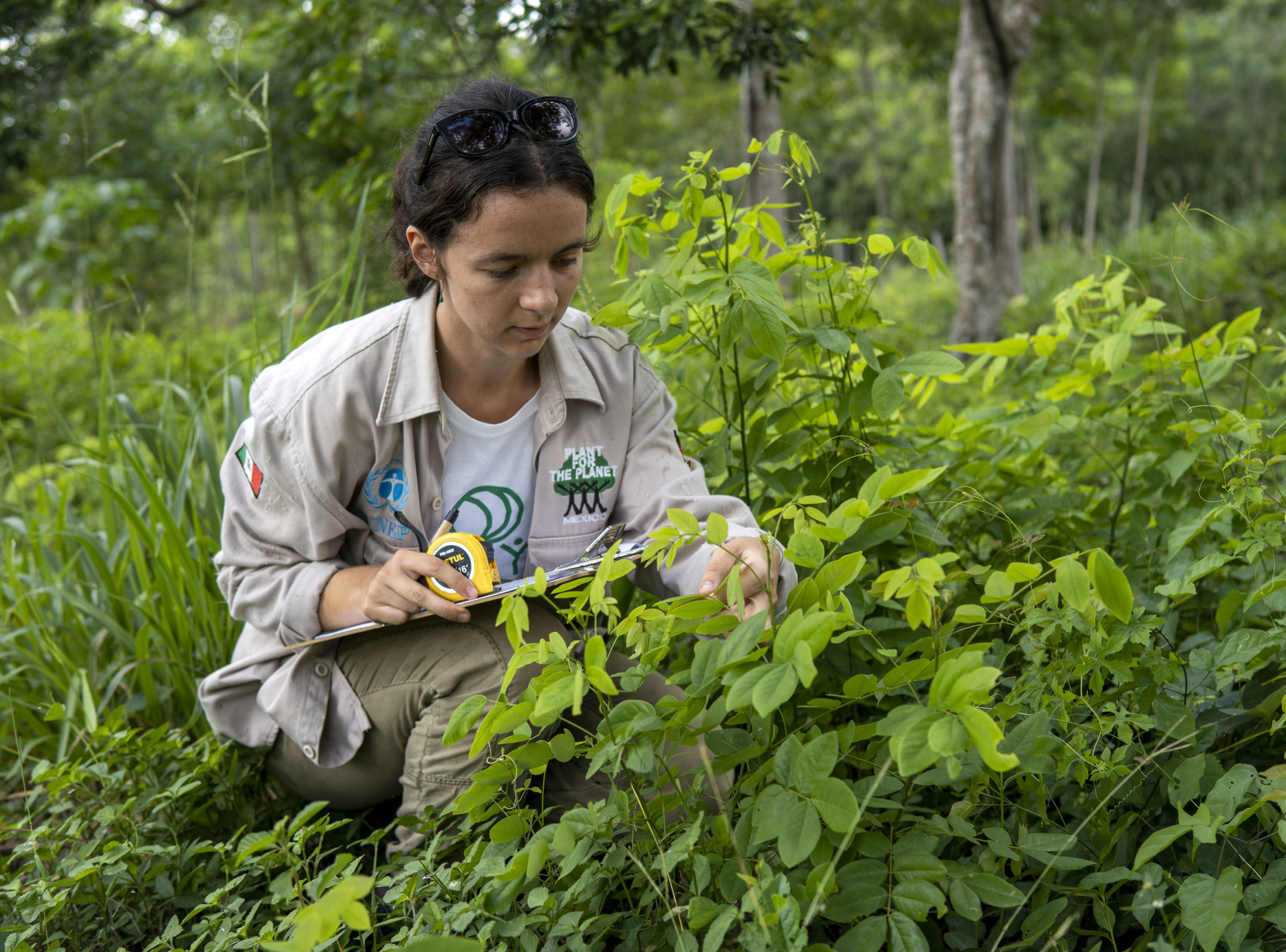
- Nearly two billion people globally rely on mountain water for drinking and irrigation, but this water source is under threat from climate change. A collaborative project between UK and Peruvian researchers is studying the impact that shrinking glaciers have on the availability of water in the Peruvian Andes. Professor Wouter Buytaert and his team have shown how strategies that include scientists working on the ground directly with communities could help them drive their own climate adaptation and boost water security.
- Postgraduate students on the SSCP DTP will receive training from outreach experts in the UK-wide Real World Science network of museums. Created in partnership with London's Natural History Museum and the Grantham Institute, the two-day course will link local issues and artefacts to environmental and climate change. SSCP DTP researcher Eloise Hunt says: “There's no other course like this so I can't wait to see how we can all use this training in the future!”
- Cats and dogs are routinely dosed with parasiticides – drugs that kill fleas, ticks, lice and worms. Regulatory approval of these products assumes that their benefit outweighs their harm. Although each dose is small, millions are applied in the UK every year, so their effect on the wildlife of parks and lakes may not be small. In March 2023, the Grantham Institute published a briefing paper, Are urban areas hotspots for pollution from pet parasiticides?, and started a national conversation about the impact of these parasiticides on natural ecosystems and how to balance the needs of domestic pets, people, and the environment.
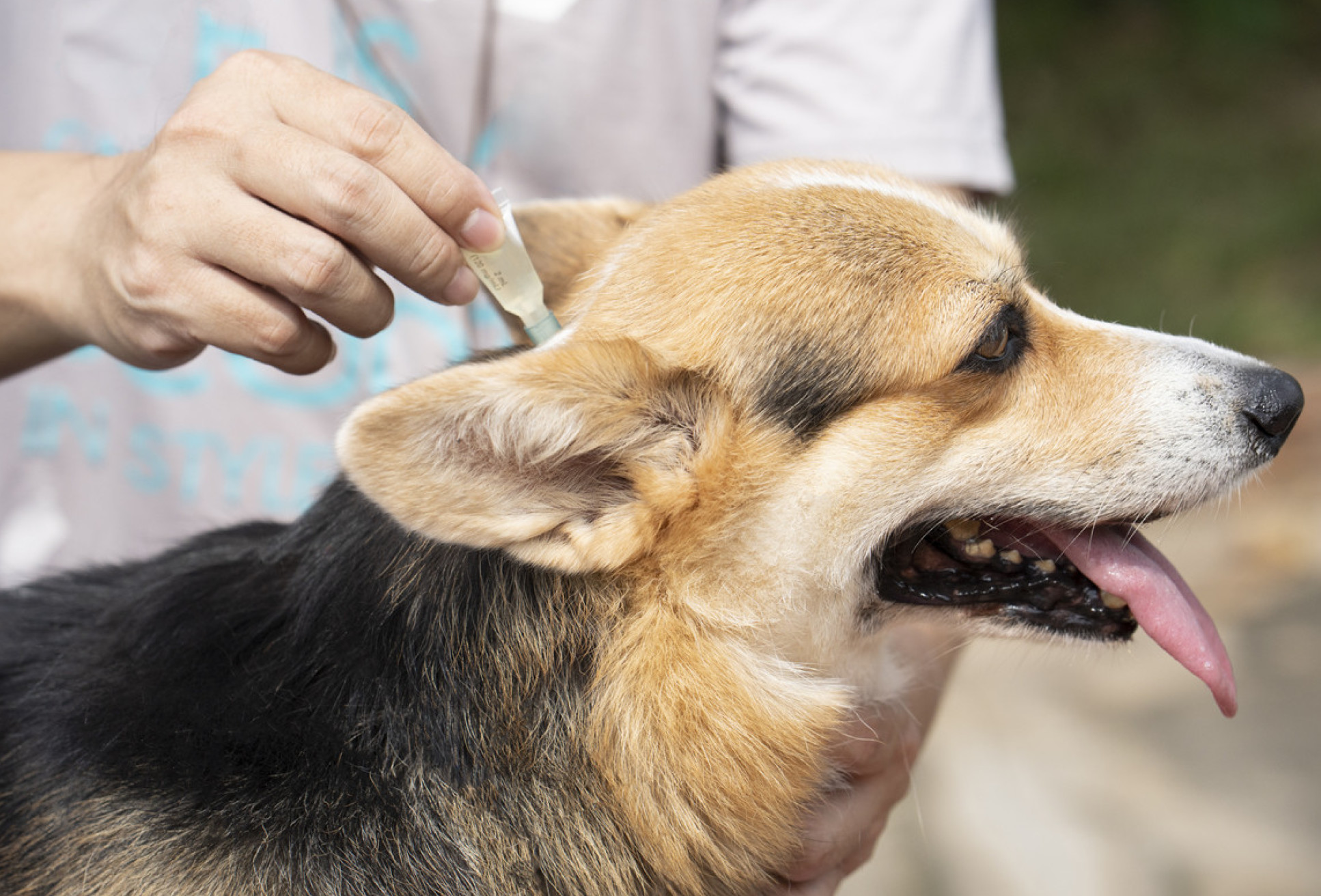
- Working with the Imperial College Business School Executive Education team, and third-party provider Esme Learning, Undaunted have produced a new 6-week online course. Climate Innovation: Accelerating to Net Zero Emissions is a paid course and open to anyone with a professional interest. The first cohort of 40 people joined in July 2022, with varied backgrounds from the construction industry to sustainability. Participants are helped to design ideas that they could consider launching as climate businesses – as entrepreneurs or intrapreneurs.
- The new Undaunted website will be home to Women in Cleantech, an initiative that supports female entrepreneurs. A partnership with the Greater London Authority, it focuses on five strands including training and development, connecting and strengthening a network, and engaging with funders and potential investors. The site will shine a spotlight on successful women entrepreneurs and showcase the diverse ways for women to get involved in climate innovation.
- The Greater London Authority are awarding over £4 million to improve the environmental credentials of the Grade 1 listed building that houses Undaunted. Works to the Royal Institution in central London will include upgrading the windows and updating heating and ventilation systems to reduce and electrify its energy use. The improvements will also provide a new space in which climate innovators can come together, create a community, and test and figure out the ways in which a heritage building can start to become, if not carbon-neutral, then having the lowest carbon emissions as possible.
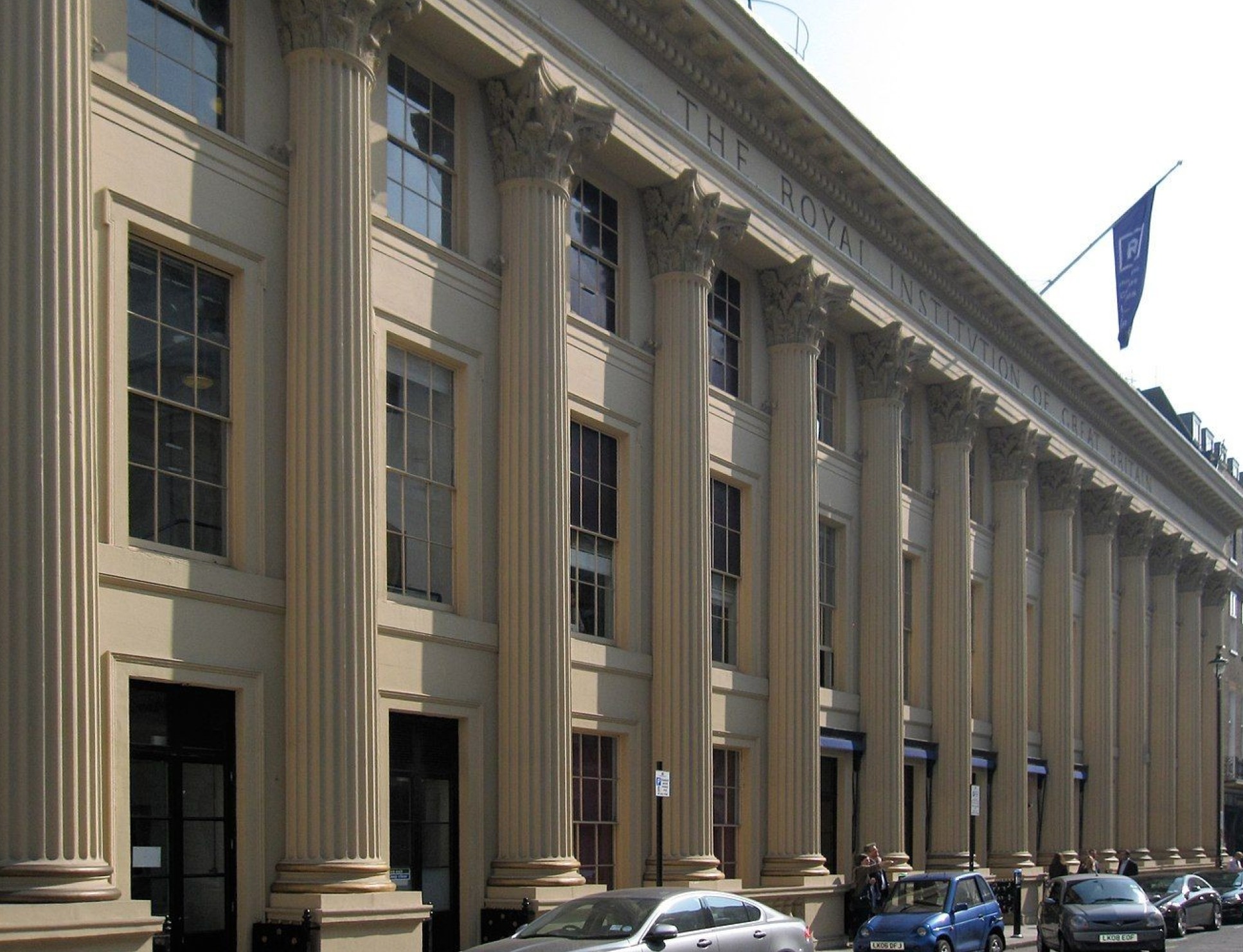
- Nuclear fusion – the process of forcing atoms together to create energy – has the potential to provide near limitless zero-carbon energy in the future. Although fusion has faced major technological barriers since it was first pursued in the 1970s, recent advancements have increased the possibility of it being realised in the coming decades. This is explored in a new Grantham briefing paper by Imperial PhD researcher Mustafa Iqbal to be released later in 2023. It provides an overview of the current state of fusion development and prospects for the future, including what governments and policymakers can do to enable further technological innovations.
- In 2023, Imperial Policy Forum and the Transition to Zero Pollution Initiative will host a series of events about ending the greenhouse gases that motorised transport contributes to climate change. In four roundtable events, Imperial experts, industry authorities and policymakers will consider key challenges such as the adoption of electric vehicles, promoting active travel, the role for hydrogen powered transport, and making net-zero flight a reality. Imperial Policy Forum will also be publishing an essay series on challenges to reaching zero pollution.
Inside Outlook 2022-23
Read Outlook 2022-23 to find out more about:
- Our research, which ranges from determining the role of climate change in extreme weather events to establishing the links between biodiversity loss and climate change;
- Undaunted, and how we are developing innovative solutions to stop climate change in its tracks;
- How we are engaging society, from our Climate Friendly Pop-Up Kitchen, to our activities at the UN Climate Change Summit (COP27);
- Who we work with, by reading our Q&As with fashion designer and Media and Events Officer Hana Amer, and researcher and industry insider Milica Fomicov;
- Our portfolio of training programmes, and the people involved in delivering them and doing them.
To keep up-to-date with research activities at the Grantham Institute, receive invites to our events and find out about our latest publications, join our mailing list.
Article supporters
Article text (excluding photos or graphics) © Imperial College London.
Photos and graphics subject to third party copyright used with permission or © Imperial College London.
Reporter
Lottie Butler
The Grantham Institute for Climate Change
Sian Halkyard
The Grantham Institute for Climate Change
